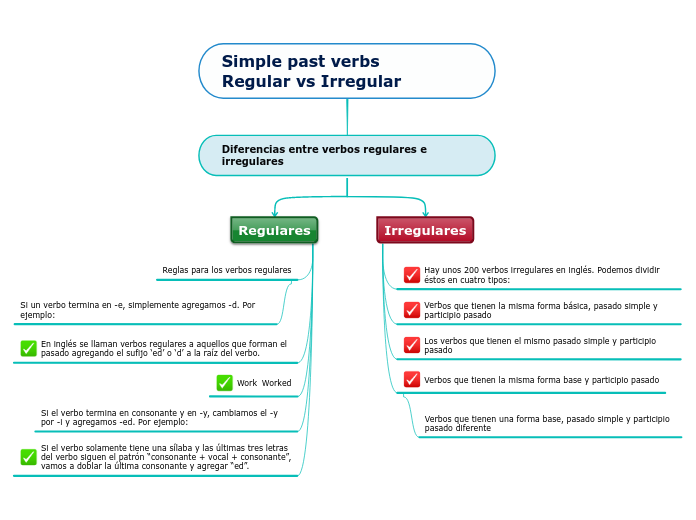przez Nias Franklin 5 lat temu
1992
Simple past verbs Regular vs Irregular

przez Nias Franklin 5 lat temu
1992

Więcej takich
The advantages and disadvantages are the pros and cons of a certain topic, that each person considers thoroughly before making a bigger decision.
Add here the topic you want to reflect on!
It can be a serious life-changing matter or even a decision on whether to buy a new car or not!
You can describe here why you need this decision or add any other considerations in this regard.
Verbos que tienen una forma base, pasado simple y participio pasado diferente
Add your counterarguments here!
Add your counterarguments here!
Add your pro arguments here!
Si un verbo termina en -e, simplemente agregamos -d. Por ejemplo: